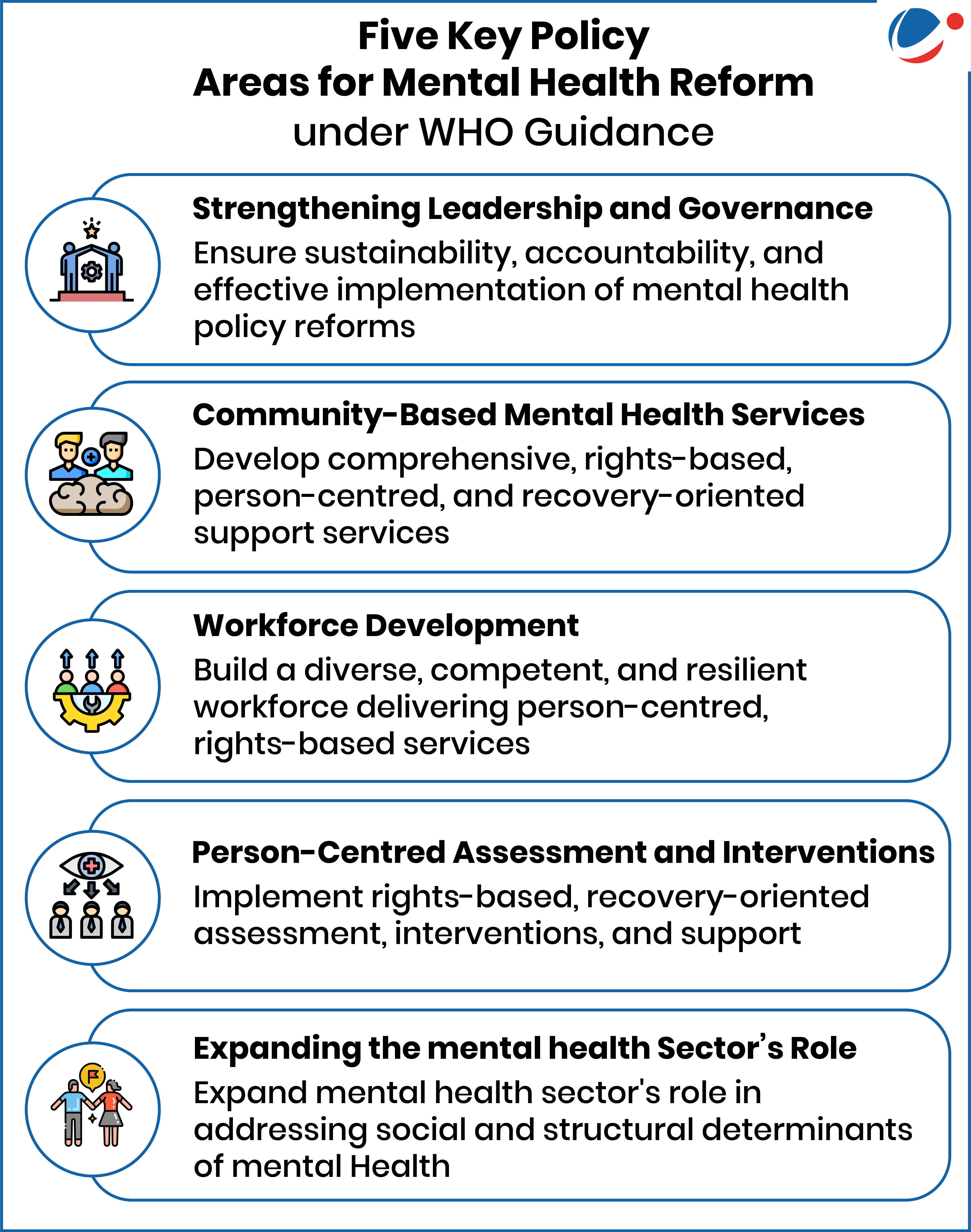WHO’s new guidance replaces its 2004 mental health policy framework and service guidance package, offering a clear path for countries to improve mental health systems.
- It stresses that mental health should be integrated as a core component of Universal Health Coverage (U H C).
About Mental Health
- Definition: WHO defines mental health as a state of mental well-being that enables people to cope with the stresses of life, realize their abilities, learn well and work well, and contribute to their community.
- Prevalence in India: 10.6% of adults in India suffer from mental disorders (NMHS Survey 2015-16)

Need for Reforming Mental Health Policies
- Global Commitment:
- Convention on the Rights of Persons with Disabilities (CRPD): Prohibits all forms of disability (including psychosocial disabilities)-based discrimination .
- W H O Comprehensive mental health action plan 2013–2030: Calls for 80% of the endorsing countries to update and implement national policies (on mental health) by 2030.
- Limited Access to Care: In some countries, up to 90% of people with severe mental health conditions receive no care.
- Poor Funding & Resource Allocation:
- Public spending on mental health is minimal, with a global median of just 2% of government health budgets.
- Funds are often spent on outdated institutions instead of community-based care.
- Lack of Inclusion: Contrary to the ethos of CRPD, people with mental health conditions have long been excluded from personal and societal decisions.



